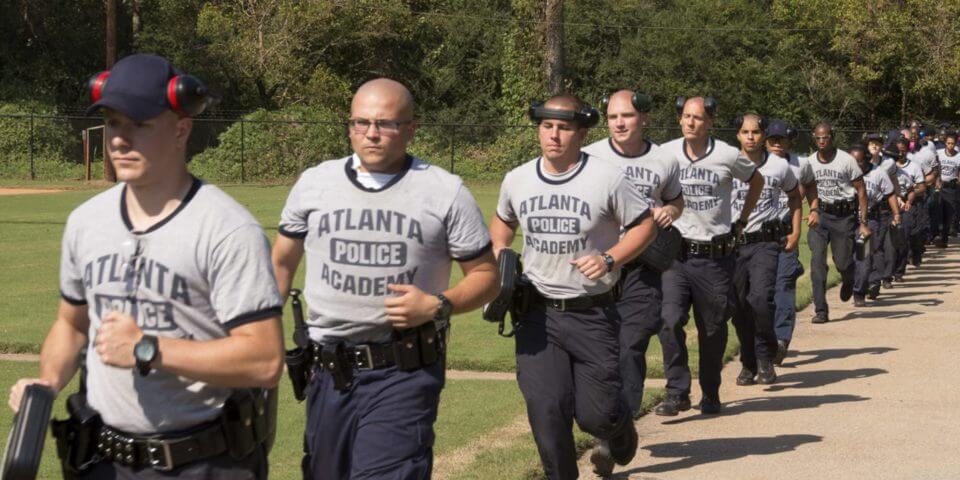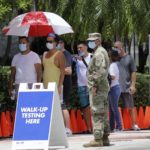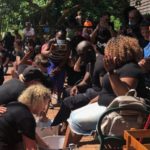
“Most Americans would be astonished to discover that, despite the devastating size, scope, and magnitude of gang crime, no federal statutory framework specifically designed to prosecute gangs exists.”
Throwing yet another gauntlet down in America’s sanctuary city saga, on September 6, 2018, Atlanta’s Democratic Mayor Keisha Lance Bottoms reportedly signed an executive order declaring that the city will no longer hold United States Immigration and Customs Enforcement Agency detainees in its jail. Mayor Bottoms’ justification for this prohibition was her described contention that ICE enforces federal policy that “inflicts misery on a vulnerable population without giving any thoughts to the horrific fallout.”
Anyone reading Mayor Bottoms’ comments could be easily left with the distinct impression ICE constitutes Atlanta’s—if not America’s—chief public safety menace. This imprint is projected even though ICE possesses a well-known, historic role in combatting gang crime.
Furthermore, Mayor Bottoms’ denunciations apparently came absent any coinciding acknowledgment of the devastation that gangs levy in Atlanta and across the nation. The State of Georgia, like the United States of America, is in a state of crisis due to gangs and gang crime. Even a cursory review of the attendant reports and studies confirms that gangs pose a pervasive, omnipresent, existential threat that decimates economies as well as public safety.
For instance, in 2018, the State of Georgia dropped five positions in CNBC’s annual ranking of “Top States for Business.” According to CNBC, this nosedive represented one of America’s most precipitous plummets. Significantly, CNBC attributed Georgia’s turbulently tumultuous tumble to rising violent crime rates.
Federal government studies explain that gangs are responsible for 48 to 90 percent of American violent crime. Georgia’s business ratings fall is, therefore, undoubtedly caused by gangs.
Moreover, Atlanta routinely appears on lists of America’s most dangerous cities. When previously ranking Atlanta as Number 6 for dangerousness, Forbes imparted, “Atlanta’s position as an ideal drug transit point helps keep it high on the list of the most dangerous cities.”
According to U.S. government findings, “Gang members are the primary retail-level distributors of most illicit drugs.” Because they propel violent and drug crimes, gangs are undeniably at the heart of Atlanta’s high dangerousness rankings.
Georgia law enforcement statistics emphasize federal findings. In July 2018, the Georgia Gang Investigators Association estimated that over 70,000 gang members operate within Georgia’s borders. According to GGIA’s report, roughly half of that number call Metro Atlanta home.
Nationally, the picture is equally bleak. In 2011, federal approximations placed U.S. gang membership at 1.4 million. This represented a 400,000 gang member increase in merely two years. Academic studies indicate that actual gang membership may exceed federal estimates by as much as three times. Another federal study found that 85% of human trafficking in the sample area was controlled by gangs.
Opting instead to level criticism in the direction of ICE, Mayor Bottoms’ announcement did not seem to mention any of these alarming facts about gangs. Paralleling the sentiments of many sanctuary status advocates, Mayor Bottoms’ proclamation does not appear to have included a commensurate pledge to implement enhanced protection from gangs.
Juxtaposed to Mayor Bottoms’ recent statement, Georgia Republican Gubernatorial candidate and current Secretary of State Brian Kemp has commendably campaigned on an innovate plan to “stop and dismantle” gangs. Similarly, Georgia’s Republican Attorney General, Chris Carr, laudably called for passage of federal anti-gang prosecution law, conveying to Pete Combs of ABC News Radio, “A federal gang statute would just simply give [law enforcement and prosecutors] another tool to be able to disrupt these networks, nationwide.”
Most Americans would be astonished to discover that, despite the devastating size, scope, and magnitude of gang crime, no federal statutory framework specifically designed to prosecute gangs exists. Additionally, current attempts to bring sanctuary cities into compliance with immigration laws, even if completely successful, would provide only ancillary protection against gangs. A far better strategy would be to focus on initiatives that contend with the gang scourge, comprehensively and directly.
For the Trump Administration and its supporters, this would mean publicly pushing for Congressional passage of a federal anti-gang prosecution law. As these Authors have delineated in the past, the far-reaching potential for positively powerful political impact is palpable. In terms of sanctuary cites, the debate would shift from “whether families should be kept together” to “whether gangs should be stopped.”
Obstructionist politicians would no longer be able to propel themselves as “in favor of children.” Instead, they could be accurately characterized as “pro-gang” and, thus, at the vanguard of child endangerment.
Opposition to a federal anti-gang law would also expose the inherent inconsistency in the arguments of sanctuary adherents. Individuals proclaiming to lend aid and comfort to “refugees from gangs” who flee to America, should want to protect those same “refuges” from gangs once they arrive in America.
Supporting a national gang prosecution law would vitally accomplish this. Advocating against such a measure would support gangs and risk perpetuating here the very perils that the “refugees” are said to have sought to escape abroad.
By proposing the enactment of a federal law aimed at eradicating gangs, the Trump Administration could assume the highest of political grounds. It would simultaneously leave a uniquely beneficial, historic legacy. Passage of federal anti-gang prosecution law would improve the lives of all law-abiding inhabitants of the United States of America for decades to come. To paraphrase these Authors’ treatment of a well-known slogan, Making America Great Again could become synonymous with Making America Safe—from gangs—Again.
And who, other than gang members, would resist that?.
Vic Reynolds is the District Attorney for the Cobb Judicial Circuit in Metro-Atlanta, Georgia. Mike Carlson serves as the Deputy Chief Assistant District Attorney for District Attorney Reynolds’ Gang Prosecution Unit. Both have been honored by the Georgia Gang Investigators Association for their efforts against criminal street gangs. District Attorney Reynolds has publicly endorsed both Brian Kemp’s and Chris Carr’s current candidacies.











